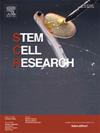使用菌落形成分析来评估自我更新的高通量工作流程
IF 0.7
4区 医学
Q4 BIOTECHNOLOGY & APPLIED MICROBIOLOGY
引用次数: 0
摘要
集落形成试验(CFA)是一种广泛用于评估癌细胞自我更新能力和评估药物治疗如何影响这种特性的方法。该方案为t细胞急性淋巴细胞白血病(T-ALL)提供了一个精简的、高通量的CFA工作流程,使其适合于大规模的药物筛选项目。菌落在基于甲基纤维素的3D基质中生长,并使用自动分析管道进行量化,从而可以对菌落数量和大小进行稳健估计。这种具有成本效益的方法为识别损害自我更新的化合物提供了一个可扩展的平台,促进了在更复杂的体内模型中验证的优先级。本文章由计算机程序翻译,如有差异,请以英文原文为准。
A high-throughput workflow for assessing self-renewal using colony formation assays
The colony formation assay (CFA) is a widely used method to assess the self-renewal capacity of cancer cells and evaluate how this property is affected by drug treatment. This protocol presents a streamlined, high-throughput CFA workflow optimized for T-cell acute lymphoblastic leukemia (T-ALL), making it suitable for large-scale drug screening projects. Colonies are grown in a methylcellulose-based 3D matrix and quantified using an automated analysis pipeline, allowing robust estimation of colony number and size. This cost-effective approach provides a scalable platform for identifying compounds that impair self-renewal, facilitating prioritization of hits for validation in more complex in vivo models.
求助全文
通过发布文献求助,成功后即可免费获取论文全文。
去求助
来源期刊

Stem cell research
生物-生物工程与应用微生物
CiteScore
2.20
自引率
8.30%
发文量
338
审稿时长
55 days
期刊介绍:
Stem Cell Research is dedicated to publishing high-quality manuscripts focusing on the biology and applications of stem cell research. Submissions to Stem Cell Research, may cover all aspects of stem cells, including embryonic stem cells, tissue-specific stem cells, cancer stem cells, developmental studies, stem cell genomes, and translational research. Stem Cell Research publishes 6 issues a year.
 求助内容:
求助内容: 应助结果提醒方式:
应助结果提醒方式:


